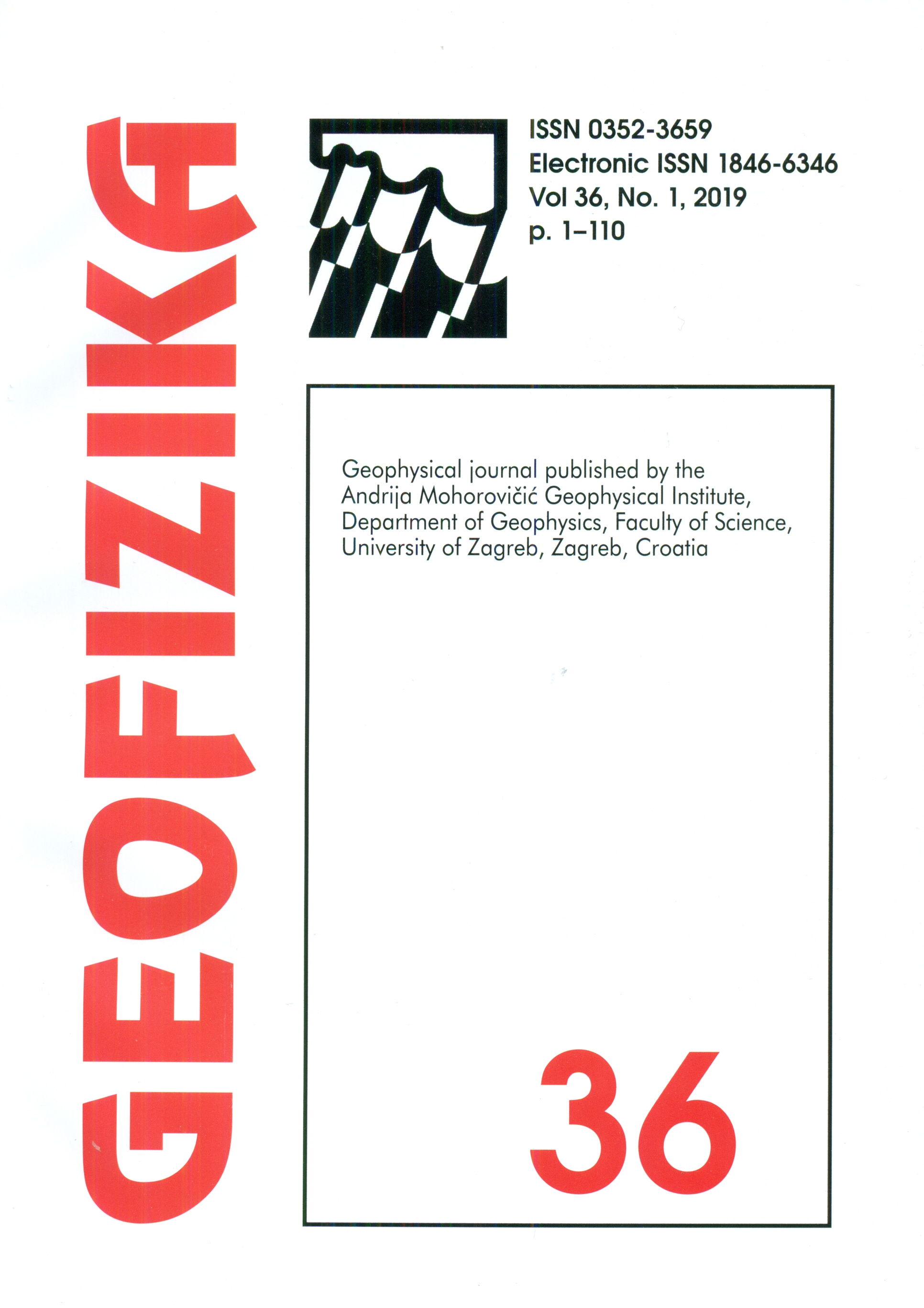Analysis of gravity disturbance for boundary structures in the Aegean Sea and Western Anatolia
DOI:
https://doi.org/10.15233/gfz.2019.36.5Keywords:
gravity disturbance, the Aegean Sea, Western of Anatolia, tensor, invariantAbstract
Western Anatolia has been shaped N-S-trending extensional tectonic regime and W-E trending horst, grabens and active faults due to the collision of Africa, Arabian and Eurasia plates. The borders of the Aegean Sea tectonic is limited between eastern of Greece, western of Anatolia and Hellenic subduction zone in the south of Crete. To evaluate these tectonic elements gravity disturbance data of the Aegean Sea and Western Anatolia was used in this study. It is thought that the gravity disturbance data reflects the tectonic elements and discontinuities way better than gravity anomaly due to the calculation from the difference between gravity and normal gravity at the same point so thus the tensors and invariants of the study area were calculated and the power spectrum method was applied to the gravity disturbance data. Various boundary analysis methods were applied to the gravity disturbance data to compare the discontinuities obtained from the tensors both theoretical and case study. These methods were tested initially on theoretical data. Within the scope of the theoretical study, a single model and three bodies model were taken into consideration. When the results are examined, it is observed that the Tzz tensor component gives very clear information about the location of the structure. Likewise, when the Txx, Tyy components and invariant results are examined, the vertical and horizontal boundaries were successfully obtained. In addition, the mean depths of these structures were determined using the power spectrum method. In the case application stage, the gravity disturbance data obtained from the Earth Gravitational Model of the eastern of the Aegean Sea and western of Anatolia were evaluated. The tensor and invariants of this gravity disturbance data were first calculated. New possible discontinuities have been identified in the tensors and some of the obtained discontinuities were clarified in their previous discussions. Also, the mean depths of the possible structures were calculated by the power spectrum method at four profiles taken from gravity disturbance data. These depth values are consistent with the depth values of the structural discontinuities obtained from previous studies. Finally, the upward continuation was applied to Tyy, Tyz and Tzz tensors up to 20 km. The positive anomaly values in Tyz and Tzz components and negative anomaly values in Tyy component are consistent with the Western Anatolia Transfer Zone. The structural differences between the eastern and the western of Western Anatolia are noteworthy in the upward continued results of the tensors. In addition, the positive and negative anomalies are notable in areas where the big earthquakes occurred in the last 3 years in the Tyz invariants.
Downloads
Published
Issue
Section
License
Copyright (c) 2021 Geofizika journal

This work is licensed under a Creative Commons Attribution-NonCommercial 4.0 International License.

